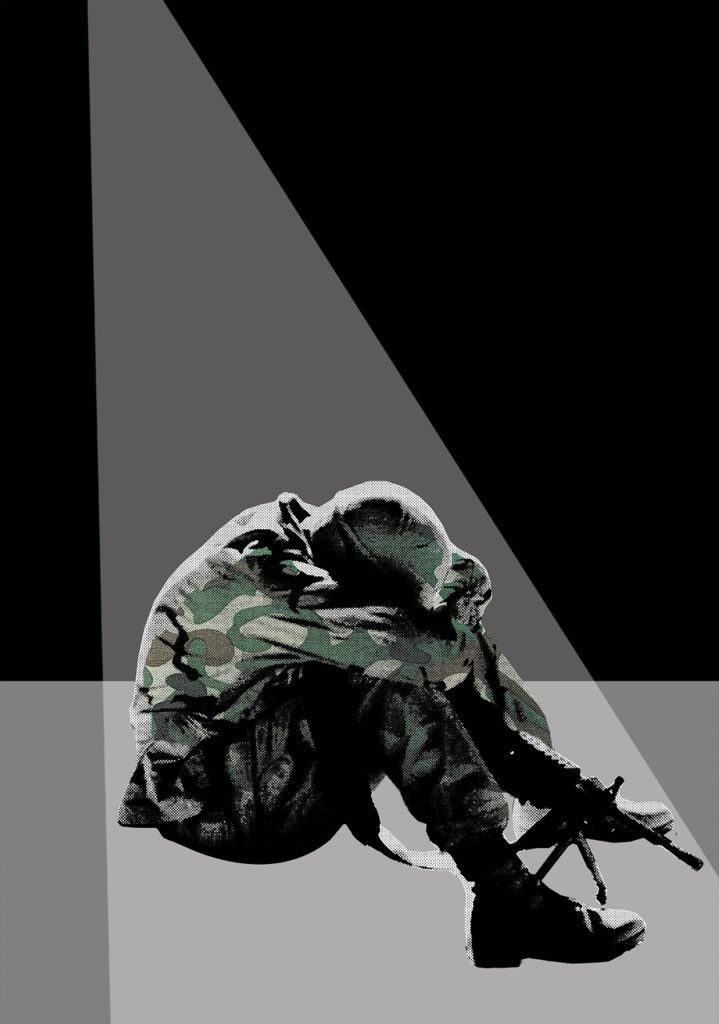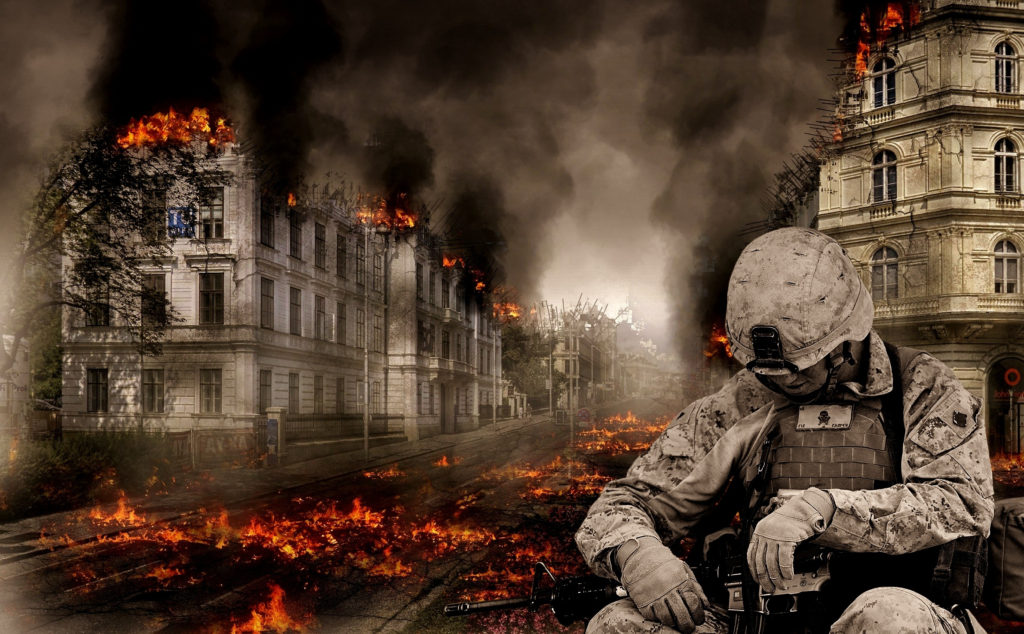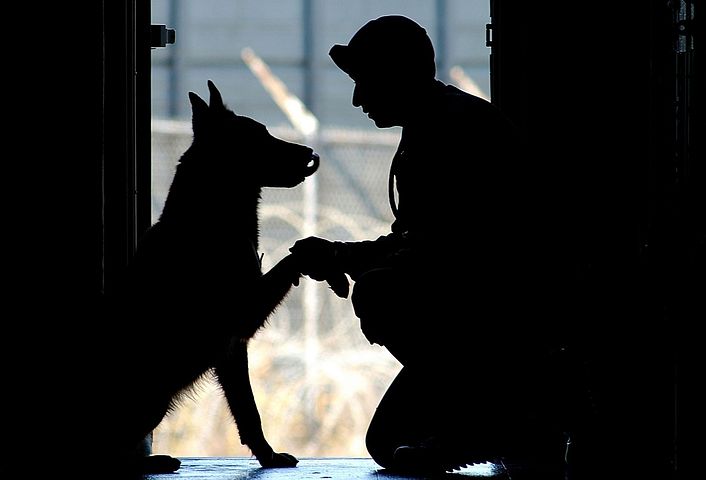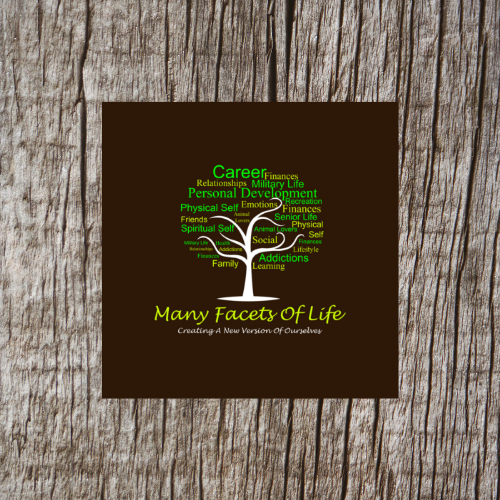Photo by Little Tree – Unsplash
Posts may contain affiliate links. As an Amazon Associate, we earn from qualifying purchases and collect a small commission at no cost to you. This helps my blog to keep going. Thank you! For more info, read my disclosure policy.
What is PTSD?
PTSD is a mental health disorder in which a person has difficulty recovering after experiences or witnessing a horrifying event. According to the National Center for PTSD, about 8 million adults have PTSD during a given year as of 2018.
It can cause problems in relationships, work situations, and daily routines.

It may last a month or years, with triggers that can bring back memories of the trauma that releases intense emotional and physical reactions. People of all ages can experience PTSD, but some factors can make it more likely to come down with it.
The experience of wartime and seeing death or serious injury among our fellow soldiers is common with military vets. Doctors are not sure what causes it but could be stressful experiences you’ve gone through in your life.
Family history of anxiety and depression, mental health problems, inherited personality traits or temperament, or how your brain reacts to chemical and hormones when you are stressed.
Anxiety disorder is a group of mental health disorders… They include generalized anxiety, social anxiety, panic attacks, post-traumatic stress disorder, obsessive-compulsive disorder. Untreated, anxiety disorders can significantly impair an individual’s daily life.
You can see more on anxiety disorders and depression in the following post that rainacamille wrote, rainawithchronicillness.com

Causes or Triggers
- See an event involving or threatened by death
- Early childhood abuse
- Having a stressful job being exposed to traumatic events, such as first responders
- Substance abuse
Most Common Causes
- Being in combat
- Sexual violence
- Physical assault
- Threatened with a weapon
- Being involved in an accident
Symptoms
- Nightmares or unwanted memories of the trauma
- Avoidance of situations that bring back memories of the trauma
- Heightened reactions, anxiety or depression
Treatment
Effective treatment is crucial in improving function or reducing symptoms
- Consult your doctor or get trauma-focused psychotherapy as well as medication to manage symptoms
- Self-care and time
- Consult Pets for Vets to match you with a rescued animal.
When you or someone you know has suicidal thoughts get help right away and make sure someone stays with that person to keep them safe. Call 911 or an emergency number immediately or take them to the nearest emergency hospital, if you can safely.
- Call a close friend or loved one
- Contact a minister, priest, or spiritual leader
- Call a suicide hotline – In the US call the National Suicide Prevention Hotline at 1-800-273-8255. Use that number and press 1 to reach the Veteran’s Crisis Line
- Call your doctor for an appt. or see a mental health professional

Pets For Vets
Pets for Vets is a 501 non-profit organization in the United States giving our military vets with PTSD or serious physical or emotional injuries a way to connect with rescue animals in order to transition back to civilian life.
It is a second chance for both animals and vets, where the animal gets a second chance on living and the vets a second chance at good health and happiness!
They take the time to listen and find the animal that will bring the most support and comfort. For more information go to Pets for Vets
Conclusion
PTSD can hit anyone that has been through a traumatic event, and it can come on soon or later in life. It just depends on what triggers it.
My dad was in the Air Force for over 20 years, fought in the Korean war, had two tours in Vietnam, and was presented with the Purple Heart.
After he retired he started drinking more, and I didn’t realize until after he had passed when he was 64, that he probably had PTSD, but at that time they were not diagnosing it.
He just used alcohol as a way to forget about what he went through. That is why I hope in time that all the soldiers and people out there with PTSD will be able to get the help and support that they need!
“PTSD: It’s not the person refusing to let go of the past, but the past refusing to let go of the person.” — Unknown
THANK YOU FOR YOUR SERVICE AND GOD BLESS AMERICA!
Posts may contain affiliate links. As an Amazon Associate, we earn from qualifying purchases and collect a small commission at no cost to you. This helps my blog to keep going. Thank you! For more info, read my disclosure policy.
#military #PTSD #trauma #triggers #mentalhealth #anxiety #depression #suicide #causes #temperament #stressful #sexualabuse #physicalassault #nightmares #PetsforVets



Great post, journaling and blogging is also a great way to deal with PTSD for all members of a military family.
Thank you for the comment Antionette! Yes, I agree with you on how journaling and blogging can be
a therapeutic resolution for all involved.
This post is beneficial for others who don’t know this one existed.
Thank you for the comment April!
This is such an important post. In most cases, it is the closest ones that have the only opportunity to realize that a family member is suffering from PTSD or any other mental illness. I believe only by getting better informed about mental health, various symptoms, and warning signs can we truly take care of our loved ones.
Thank you for your feedback, Natalia! I agree with what you said. Yes, people need to be made more aware of this!
Great post with important information on a topic we need to be talking more about as a society. Trauma impacts so many people, from all walks of life. As a yoga therapist, I’m fascinated by how effective body-based modalities can be in helping to heal trauma responses. Thank you for sharing this!
Thank you for your feedback. Rose! I am glad you also see the importance of creating awareness on this topic.
PTSD — generally we people are not aware of this. Thanks for making the readers aware of this serious problem, faced especially by servicemen all over the globe.
Thank you for stopping by and leaving feedback, Narasinh! Creating awareness seems to be a common factor in people’s comments.
This is SO important to talk about. Too often people associate PTSD solely with those who have been in combat situations, dismissing their own struggles. However, it’s important to understand that there is so much more to it. Accepting that you could, in fact, be facing PTSD after a traumatic situation or event is really the first step to getting the help necessary.
Thank you for your feedback, Britt! Well said!!
No one should have to deal with PTSD everyone needs help and should get help I love this article.
Thank you for your feedback!